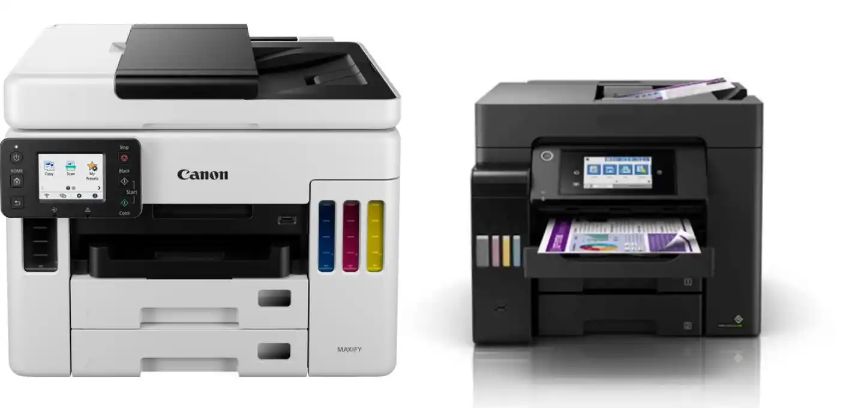Sustainable Agriculture Meets Cutting-Edge Tech: Fields Get Smarter
3 min read
09 Jun 2024
Agriculture, a cornerstone of human civilization, is evolving at an unprecedented pace, driven by the need for sustainability and efficiency. Sustainable agriculture practices are increasingly intertwined with cutting-edge technologies, ushering in a new era where fields are getting smarter. From precision farming to advanced sensors and artificial intelligence, these innovations are transforming agriculture into a high-tech, eco-friendly endeavor.
Precision Farming for Sustainable Crop Management:
Precision farming, often referred to as smart farming, is at the forefront of sustainable agriculture. This data-driven approach relies on technologies like GPS, remote sensing, and IoT devices to optimize every aspect of crop management. Here's how precision farming contributes to sustainability:

Reduced Resource Waste: Precision farming enables precise application of water, fertilizers, and pesticides, minimizing resource waste. This not only saves costs for farmers but also reduces environmental impact.
Improved Soil Health: Continuous soil monitoring and data analysis allow farmers to make informed decisions about soil health and fertility. Sustainable soil management practices promote long-term soil health.
Enhanced Crop Yields: By optimizing planting patterns, managing resources efficiently, and responding to issues promptly, precision farming increases crop yields. Farmers can achieve higher production levels without expanding their land, reducing pressure on natural ecosystems.
Sensors and IoT Devices for Real-Time Monitoring:
The deployment of sensors and IoT devices in agriculture has revolutionized real-time monitoring. These devices collect data on soil conditions, weather patterns, crop health, and more. Here's how they contribute to sustainable agriculture:
Irrigation Management: Soil moisture sensors provide real-time data on soil hydration levels, allowing farmers to adjust irrigation precisely. This prevents overwatering, reduces water waste, and promotes water conservation.
Early Pest Detection: IoT devices can detect changes in environmental conditions that indicate the presence of pests or diseases. Farmers can take preventive measures, reducing the need for chemical pesticides.
Weather Forecasting: Access to real-time weather data helps farmers anticipate extreme weather events and adjust farming practices accordingly. This reduces crop losses due to adverse weather conditions.
Artificial Intelligence and Machine Learning for Predictive Farming:
Artificial intelligence (AI) and machine learning (ML) are transforming agriculture by processing vast amounts of data to make predictions and recommendations. These technologies enhance sustainability in the following ways:
Crop Disease Prediction: AI algorithms analyze environmental data to predict the likelihood of crop diseases. Farmers can take proactive measures to prevent outbreaks, reducing the need for chemical treatments.
Resource Optimization: Machine learning algorithms process data on crop growth, weather, and soil conditions to recommend optimal planting times and resource allocation. This minimizes resource waste and maximizes efficiency.
Weed Control: AI-powered robotic systems can identify and target weeds without the need for herbicides, reducing chemical use and minimizing environmental damage.
Satellite Imagery and Drones for Precision Agriculture:
High-resolution satellite imagery and drones equipped with specialized cameras and sensors provide valuable insights into crop health and field conditions. These technologies contribute to sustainability by:
Early Disease Detection: Drones can capture detailed images of crops from various angles, allowing farmers to spot signs of disease or nutrient deficiencies early. Timely intervention reduces crop losses.
Precision Mapping: Satellite imagery and drones enable farmers to create accurate field maps, helping with planting, irrigation, and pest control strategies. This reduces resource wastage.
Erosion Control: By monitoring soil erosion and field conditions, these technologies support erosion control efforts, preserving soil quality and preventing runoff into water bodies.
Blockchain Technology for Supply Chain Transparency:
Sustainability in agriculture goes beyond the field; it extends to the supply chain. Blockchain technology is being used to improve transparency and traceability in the agricultural supply chain. Here's how it helps:
Food Traceability: Consumers can trace the origin of their food products, promoting trust and accountability in the supply chain. This technology reduces the risk of foodborne illnesses and ensures ethical sourcing practices.
Efficient Logistics: Blockchain streamlines supply chain logistics, reducing food waste through better inventory management and efficient distribution.
Fair Trade: Blockchain can verify fair trade and organic certifications, ensuring that consumers are supporting ethical and sustainable agricultural practices.
Challenges and the Path Forward:
While sustainable agriculture technologies hold immense promise, challenges remain:
Access to Technology: Ensuring that small-scale and resource-limited farmers have access to these technologies is essential to achieving widespread sustainability.
Data Privacy and Security: As agriculture becomes increasingly data-driven, protecting sensitive information from cyber threats is crucial.
Skills and Education: Training and education are necessary to empower farmers and agricultural workers to effectively use these technologies.
Regulation and Ethics: Balancing innovation with safety and ethical considerations, especially in biotechnology and genetic engineering, is an ongoing challenge.
Conclusion:
The integration of cutting-edge technology into sustainable agriculture practices is transforming the industry and holds the key to addressing global challenges such as food security and environmental conservation. From precision farming to real-time monitoring, artificial intelligence, and blockchain, these innovations are making fields smarter and more environmentally responsible. As technology continues to advance and become more accessible, sustainable agriculture will play a pivotal role in ensuring a prosperous and eco-friendly future for the world's growing population. In this high-tech age, the fields are not just getting smarter; they're also becoming more sustainable and environmentally responsible.



